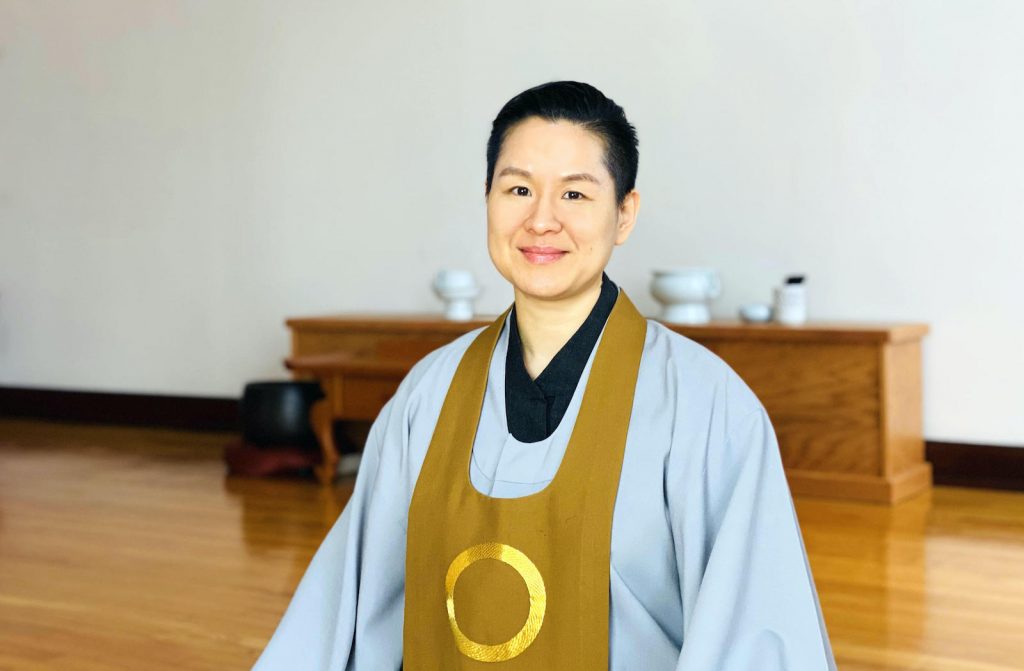Why is it important to make choices with sound thought in all that we do? The sequence is usually think first, and then put it into action. Here, thinking is extremely important. How are we thinking? Do I have the ability to see the big picture, or do I only focus on myself? My actions vary depending on how wide, deep, and long (in terms of time) my thinking is.
Let’s say you live in a communal setting, and you get a delicious cheesecake as a gift from a friend. If you think to yourself, “I want this cheesecake all to myself,” your next move is likely to hide it somewhere where no one can see it.
However, if you have a broader mind, you might consider, “Well, the guy who lives next door is pretty cool, so maybe I’ll share a piece just with him.” But let’s suppose you have an even broader mind, and you decide, “I’m going to have a slice for myself, and leave the rest in the fridge so that others can have a piece as well.” And you write on a sticky note, “Help yourself, but please leave some for the others.”
It’s a simple example, but you can see that actions differ according to how deeply, broadly, and vastly we think. How you think today is how you live your life.
A sound mind is important. But what does it mean to be sound? This is a mind that is clear and round, calm, and tranquil. Another way to put it is that if your mind is vast, then there’s no room for greed. If your mind is narrow, then it’s all about me, me—that small, egoic sense of self. A vast mind moves to the side of the public good. When we engage in mind study, we begin to realize that the whole is me. This is to understand that in order for me to live a happy life, others must as well. A small-minded person, however, will not think broadly, widely, or in a public-spirited manner. When we are in this state, it’s very egotistical. It’s what I need, what I fear; it’s what’s wrong with you, what’s wrong with me. It’s focused inwardly.
But when we practice, we don’t just do it for ourselves. That’s, of course, the first step, but there is a greater vision. When we shine the light inwards, settle the thoughts, and truly tap into our true self, there is this vastness.
How do you think a practitioner who wishes for all to attain Buddhahood will treat others? If they see somebody else working diligently, they will encourage them. Or if anyone is having difficulty, they will try to assist them as much as possible.
On the other hand, if a practitioner has a very small mind and thinks to himself, “I want to be the first to achieve Buddhahood,” how do you think they’ll respond if they see someone practicing very hard? They might become annoyed, jealous, distracted, and competitive.
You might pause here to reflect on the previous week. Notice if there were any encounters where you were challenged in some way. How did you respond? Did you respond from your deepest intelligence? As you may experience, when we come up against something difficult, we can get caught up in our egoic self, and then we can get very small, and it’s all about me versus the other person.
The Threefold Practice [of Won Buddhism, which is absorption, inquiry, and making mindful choices,] helps us to widen our mind, especially when we come across a difficult situation. As I mentioned in previous talks, we’re able to stop. When we stop, we can create space. When we stop, we can settle the mind and then think from a place of clarity.
So what arises is not the problem. That’s natural. Of course we have reactions to difficult circumstances. We can get angry, irritated, annoyed, frustrated—these are natural emotions that come up for us because we are obviously not insentient objects.
Just notice what’s going on and let it be there so that we deepen presence. Realize this is the reality of the moment, but I have a decision now—I don’t have to automatically react. With a clear mind, we are able to think through the situation, rolling through the thoughts, and then make a decision by figuring out what is right and what is wrong in the situation.
So pausing gives a space, widening our perspective so that we can think from a clear place, and then truly allows us to communicate, trust, and love. [Austrian psychiatrist and author] Viktor Frankl once said, “Between the stimulus and the response, there is a space, and in that space is your power and your freedom.”
♦
This transcript has been edited for length and clarity. See here for Rev. Grace Song’s full Dharma Talk.
Thank you for subscribing to Tricycle! As a nonprofit, we depend on readers like you to keep Buddhist teachings and practices widely available.
